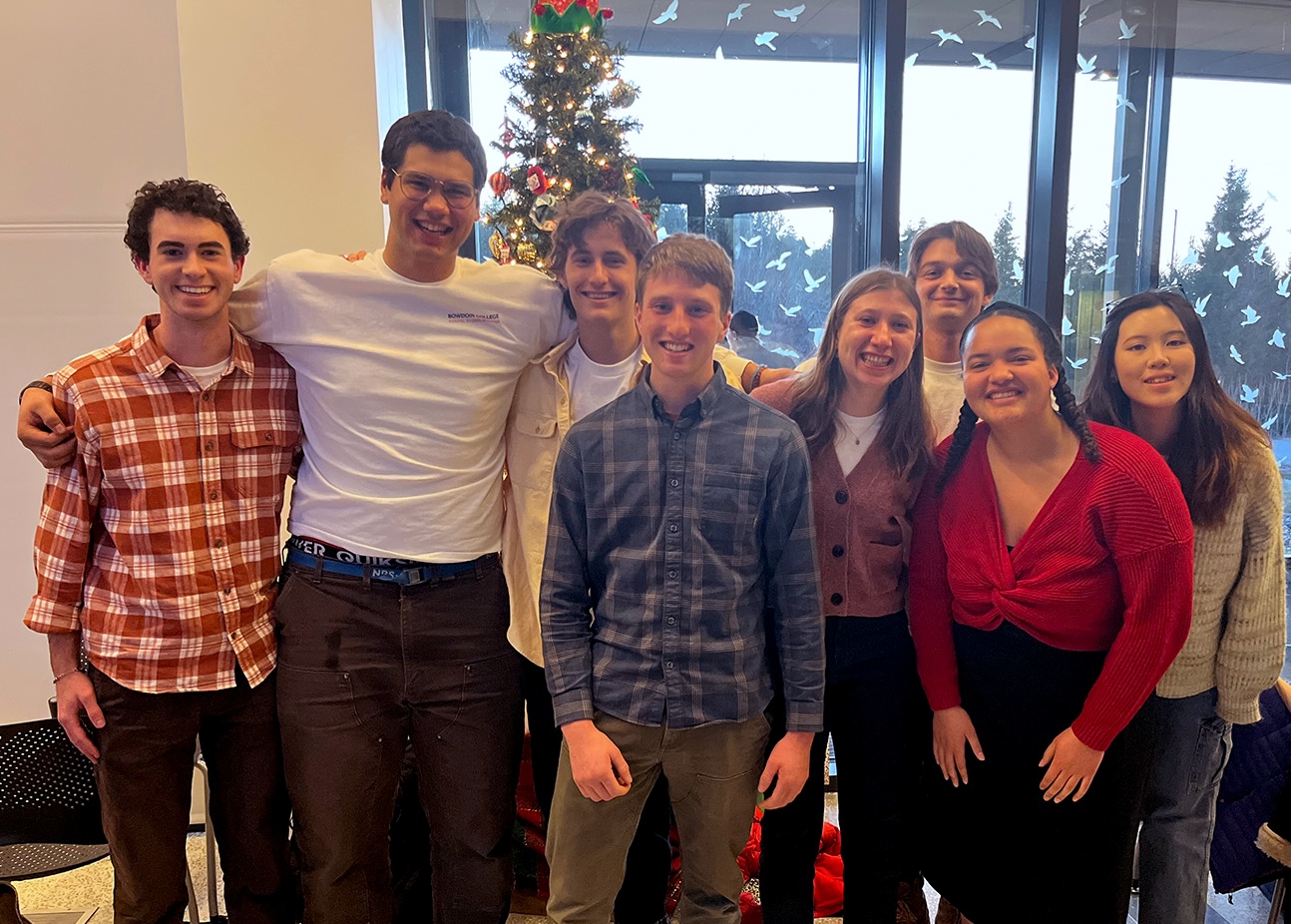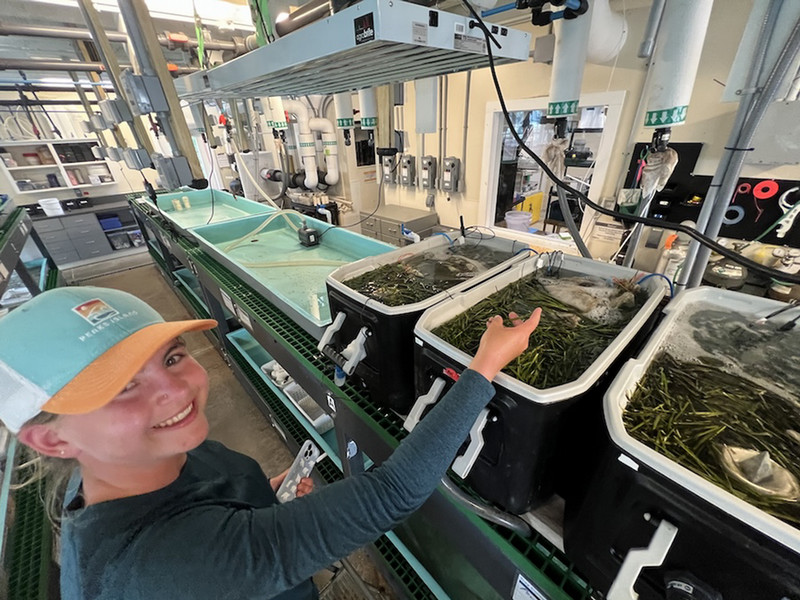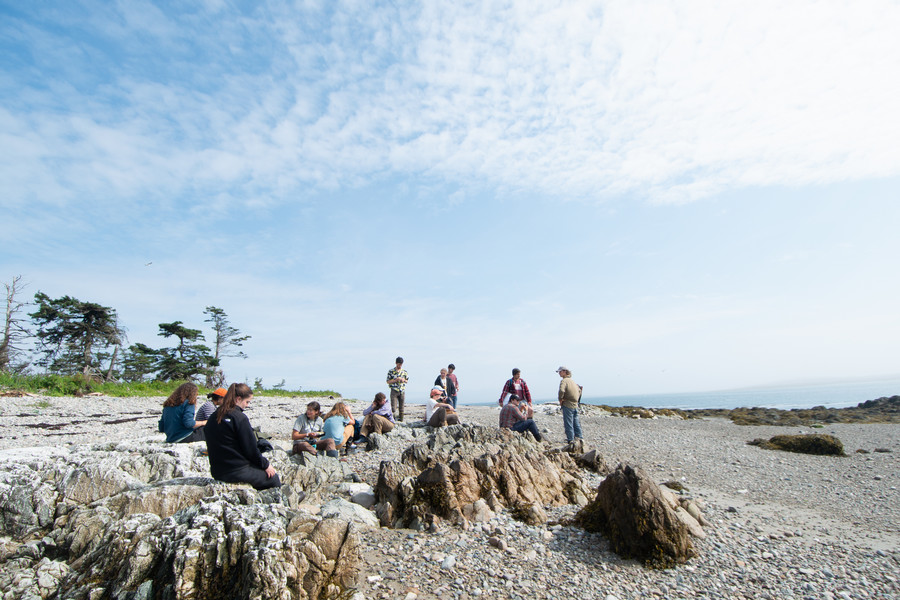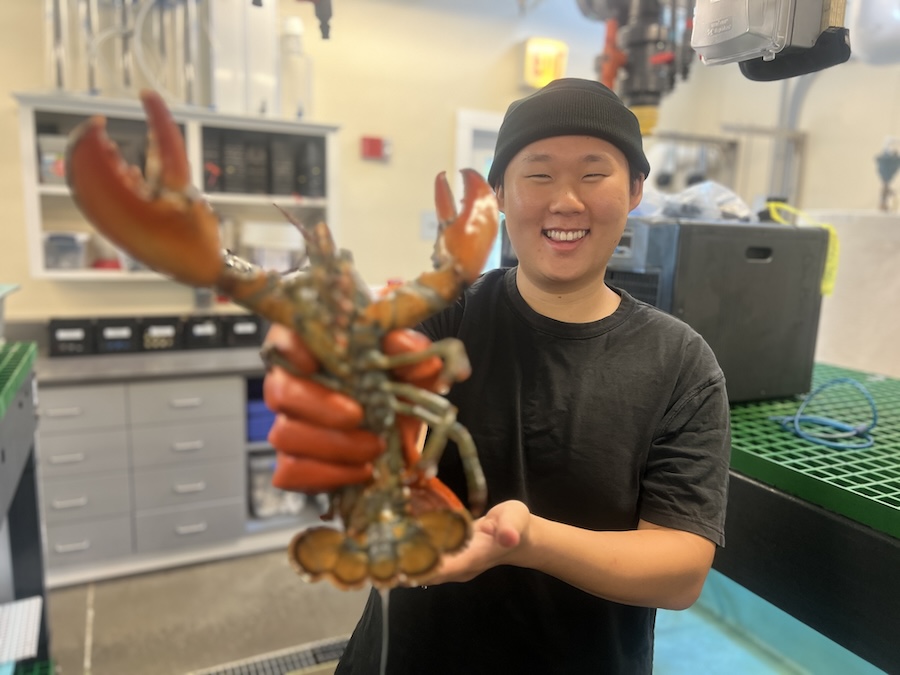Bowdoin Announces New Coastal Studies Semester
By Rebecca Goldfine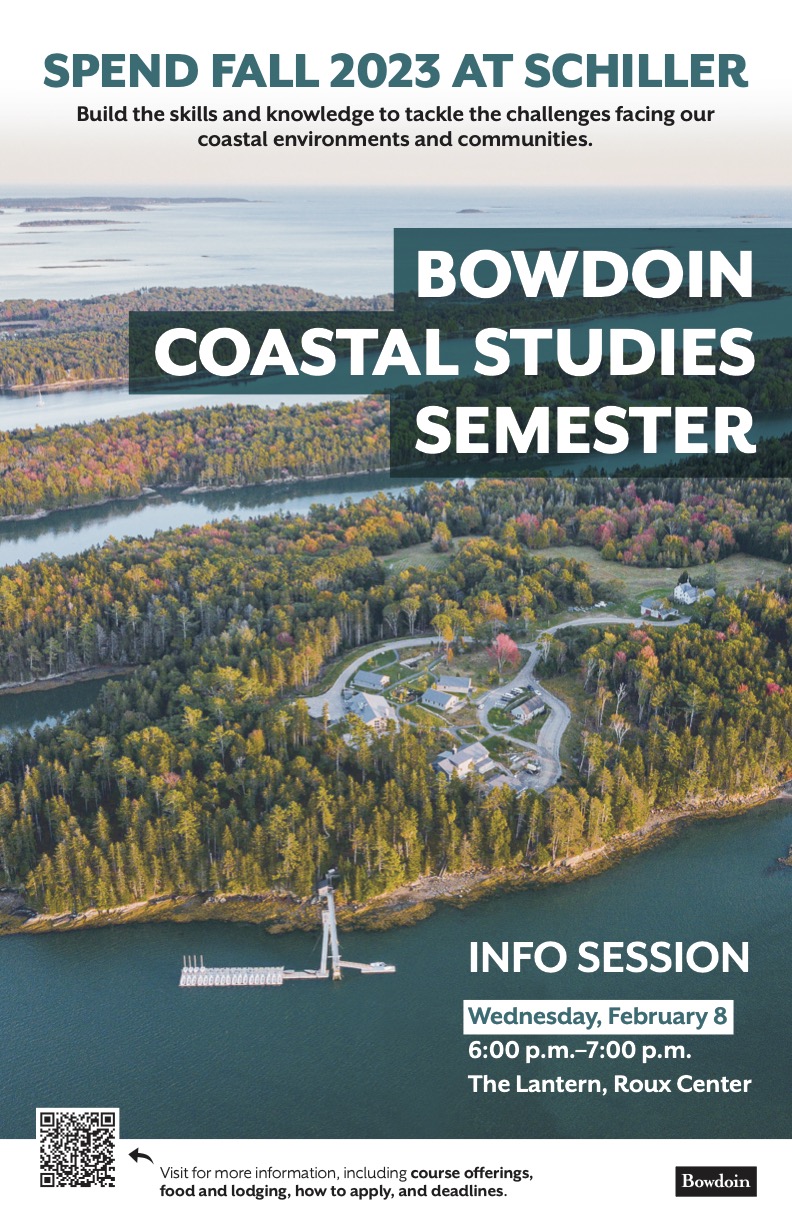
Formerly the Bowdoin Marine Science Semester, the program is now called the Bowdoin Coastal Studies Semester (BCSS) to reflect its expanding purview, which includes marine science as well as a broader interdisciplinary examination of the Gulf of Maine.
"We're in the Gulf of Maine—it is one of the fastest-warming bodies of water in the world. The opportunity for us to identify challenges and build solutions for healthy environments, communities, and economies is huge," Parker said. "It is right on our doorstep. So that sharp focus on our backyard, our home, provides a tremendous amount of place-based learning."
The initiative was launched in 2015 by Professor of Biology David Carlon, who ran it through 2022. Based at the Schiller campus in Harpswell, the Bowdoin Coastal Studies Semester can accommodate a dozen undergraduates. They are taught by a small group of faculty, creating a tight-knit learning community. Each student also pursues an independent research project, which Parker says will remain the core of the program.
"I love data. I love marine science. And how we use that data and communicate that data is also a passion of mine. We are pulling those pieces together in the Schiller Center to have a bigger impact. We do the science, we communicate the science, and we help build solutions with the science. I hope the semester will reflect that." — Holly Parker
The semester will not lose its strong foundation in physical science, Parker insists, but will rather gain a deeper grounding in the social sciences and humanities. It will also maintain its focus on studying sustainability—an ever-growing need as Maine faces an uncertain future with more extreme storms, rising sea levels, warming waters, and changing fisheries.
Dean for Academic Affairs Jen Scanlon said the College is thrilled "to witness new curricular growth and interdisciplinarity at the Schiller Coastal Studies Center, enabling us to take fuller advantage of our faculty’s many connections to coastal concerns, make greater use of our beautiful new facilities, and deepen our students’ understanding of the richness of and challenges facing coastal environments and communities, particularly those in the Gulf of Maine."
To broaden its geographical and interdisciplinary reach, the Coastal Studies Semester curriculum will include field trips up and down Maine's coast to, for example, Kent Island and Hurricane Island. Parker is working with course instructors and Schiller staff throughout the spring and summer to create more integrated learning and research experiences, she said. These could include visits to places like Malaga Island and lobster processing facilities, as well as visits with local artists, fishermen, aquaculturalists, scientists, and policymakers.
"Coastal communities require many voices and many lenses to address their challenges, so if we can create some of that dynamic within a semester program, that will be very exciting," Parker said.
"I love the idea of getting real dialogue going," she added. "How do you get folks with different points of view to speak with each other and not at each other?"
Another adjustment is that the academic program's course schedule will follow Bowdoin's traditional "parallel" structure, in which students take four classes simultaneously each semester. Previously, the Marine Science Semester offered course modules, with students taking only one class for a few weeks before transitioning to the next module.
This new schedule will allow more faculty from across Bowdoin's curriculum to teach classes. Parker imagines that professors of visual arts or digital or computational studies faculty, among others, could offer courses, taking marine studies in novel directions.
"I want to get an array of voices," Parker said, and will consider classes that have "an intersection with coastal concerns, particularly climate-related ones, that talk about relationship with place."
Bowdoin's administration and faculty have been considering altering the marine studies program for some time, preceding Parker's arrival. This past fall, to restructure the semester, Parker worked with a faculty advising committee that included oceanographer Collin Roesler, plant ecophysiologist Barry Logan, mathematician Mary Lou Zeeman, GIS and spatial analysis expert Eileen Johnson, and writer Anthony Walton.
The restructured Coastal Studies Semester will roll out for the first time in fall 2023. Its four courses include Benthic Ecology, taught by Doherty Marine Biology Postdoctoral Scholar Katie Dubois; Ocean Acidification, with Associate Professor of Earth and Oceanographic Science Michèle LaVigne; Current Topics in Marine Science, taught by Research Associate in Biology and Mathematics Olaf Ellers, and, pending new course approval, The American Shore Ode with Senior Writer-in-Residence Walton.
For interested students, Parker says the Coastal Studies Semester offers an opportunity "to be in your comfort zone and out of your comfort zone," pushing science majors to incorporate social perspectives into their research, and for humanities students to explore marine science and oceanography.
Applications are due March 10.
